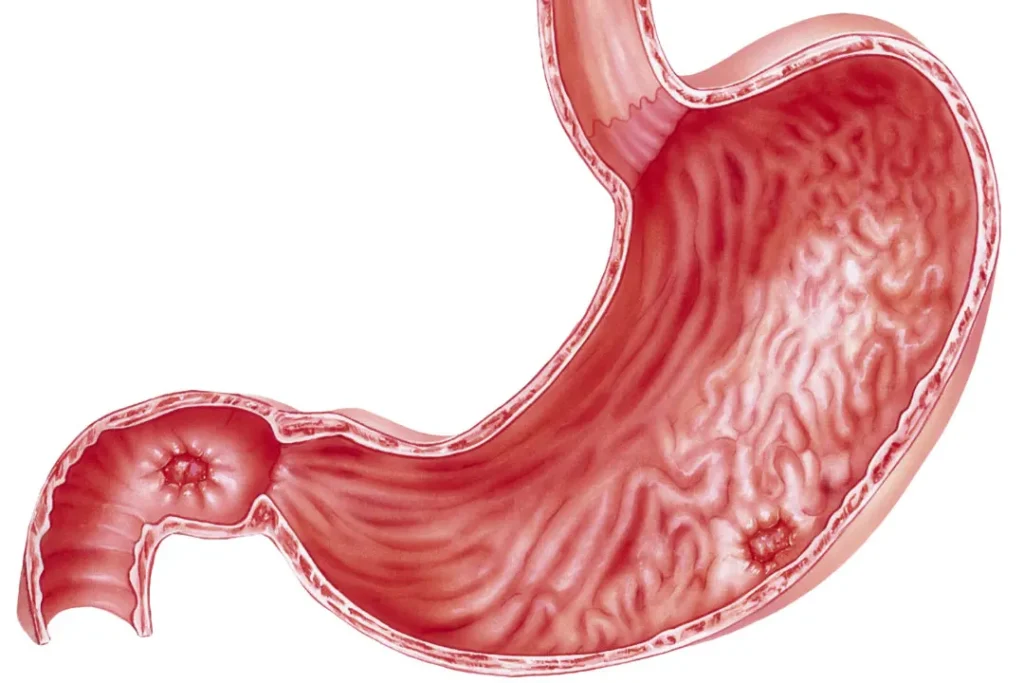Sweetwood is a popular name for the Cascarilla (Croton eluteria), a plant species that is indigenous to the Bahamas and the Caribbean. Due to its potential for healing, this plant has garnered a lot of interest throughout time. The whole plant, not only the fragrant bark, is medicinally valuable in the cascara tree. The plant has historically been used in the creation of incense or smudge sticks, drinks, and medicines. Cascarilla also offers a wide range of possible health advantages in the context of nutritional supplements.
You May Also Like:
Vitamin C: Benefits, Dosage, Side Effects, Drug Interactions, and Other Important Information
The Nature of Cascarilla
Cascarilla, also known as Croton eluteria in the scientific community, belongs to the family of plants known as the Euphorbiaceae. The distinctively fragrant bark of this little, evergreen tree, which is endemic to the Caribbean, particularly the Bahamas, is its recognizable feature.
The Cascarilla tree has the following physical characteristics: it normally grows to a height of 12–20 feet. It has oval-shaped leaves with a shiny texture on top and a duller look beneath. The tree’s bark, which has a rough texture and a grayish tint, is the component of the tree that is most often employed in traditional medicine.
Cascara grows well in subtropical climes, especially along the shore where the sandy, well-drained soil is advantageous. Cascarilla was first found only in the Caribbean, but it has now spread to Florida and other Southern U.S. states.
Intriguingly, the name “Cascarilla” relates to the hard, shell-like bark of the plant and is derived from the Spanish word “cascara,” which also means “husk” or “shell.” Due to the abundance of essential oils and alkaloids in the plant, this bark has a powerful, unique smell and a bitter flavor.
The peculiar characteristics of cascara, especially the fragrant and bitter components, have made it a common ingredient in a wide range of cultural behaviors, from medicine, drinks, and religious rites. However, the medicinal potential of this interesting plant is piquing the attention of academics and practitioners alike in the field of nutritional supplements.

Health Benefits of Cascarilla
The extensive list of bioactive compounds in cascara provides a variety of possible health advantages. Cascarilla’s eugenol, cascarillin, cascarine, and tannins have anti-inflammatory and antioxidant qualities that may have an impact on a number of medical problems, including cancer, heart disease, and neurological illnesses. The pathophysiology of these disorders is thought to be mediated by oxidative stress, which is combated by the antioxidative nature.
Additionally, the Cascarilla’s antibacterial qualities may help boost resistance. Although additional scientific research is necessary to verify these uses completely, practitioners of traditional medicine often utilize it to treat fevers, colds, and other diseases.
Given its possible anti-inflammatory properties, cascara might be helpful in treating inflammatory conditions including inflammatory bowel disease (IBD) and arthritis. Last but not least, owing to its conceivable antimalarial effect, cascara may be utilized to prevent or cure malaria. However, additional research is necessary in this regard.

Chemical Composition of Cascarilla
Determining Cascarilla’s possible advantages and disadvantages requires an understanding of its chemistry. Volatile oils, tannins, and alkaloids like cascarillin and cascarine are the most significant substances found in the bark of the cascara tree.
The plant’s fragrant qualities are due to its volatile oils, which predominantly consist of eugenol. For its anti-inflammatory, antioxidant, and anesthetic effects, eugenol has received much research. It works largely by blocking the cyclooxygenase (COX) pathway, which lowers the body’s production of prostaglandins, which are responsible for causing inflammation and discomfort.

Physiological Mechanisms of Action of Cascarilla
Contrarily, the alkaloids that add to the bitter flavor of Cascarilla are thought to be the primary reason for the plant’s therapeutic benefits. They display a broad spectrum of bioactivities, including anti-inflammatory, anti-cancer, anti-microbial, and anti-malarial properties. Alkaloids primarily affect cells by interacting with various proteins and enzymes there and changing how they operate.
It has been shown that the tannins in Cascarilla have anti-inflammatory, antibacterial, and antioxidant activities. They interact with proteins and enzymes, especially those implicated in the inflammatory response, to produce these effects.
Optimal Dosage of Cascarilla
The ideal Cascarilla dose varies depending on the intended benefits and certain medical problems. Since the scientific community has not yet established precise dose recommendations, there is no defined dosage. Therefore, it is advisable to speak with a healthcare professional if you are thinking about taking Cascarilla as a supplement to determine appropriateness and determine a safe dose.
Cascarilla may have adverse effects, just like any other dietary supplement. When taken in moderation, it is usually regarded as safe, but excessive use of it may cause gastrointestinal discomfort, including nausea and vomiting. Allergic responses are another potential adverse effect, particularly in those who are already known to be sensitive to plants of the Euphorbiaceae family.

Potential Side Effects of Cascarilla
Despite the various possible health advantages of using cascara, its potential adverse effects should not be ignored. Adverse gastrointestinal symptoms, such as nausea, vomiting, and upset stomach, might result from excessive ingestion. These tannins and alkaloids in the bark are probably to blame for this. While these substances are advantageous in moderation, when ingested in excess they might irritate the lining of the stomach and intestines.
Some people may have allergic responses to cascara. As mentioned, people who are known to be allergic or sensitive to plants in the Euphorbiaceae family are at increased risk. Milder skin irritations to more severe responses like breathing difficulties are all possible symptoms. It should not be used by anybody who has a known allergy to Cascarilla or similar plants.
As with any dietary supplement, it is important to discuss the use of Cascarilla with a healthcare professional, especially for people with pre-existing medical issues, women who are pregnant or nursing, and people who take medication.

Potential Substance Interactions with Cascarilla
When assessing a supplement, it’s crucial to take interaction with other drugs into account. With certain medicines, Cascarilla may have an interaction. Due to its anti-inflammatory qualities, it may intensify the anti-inflammatory effects of other anti-inflammatory pharmaceuticals or non-steroidal anti-inflammatory drugs (NSAIDs). The likelihood of negative consequences, such as gastrointestinal bleeding, might rise as a result. Cascarilla may also interact with medications, perhaps affecting how effective they are owing to its possible antibacterial action.
Furthermore, Cascarilla could prevent the liver from properly metabolizing medications. Its putative inhibitory effects on certain liver enzymes, particularly those in the cytochrome P450 enzyme family, are the reason for this. This may result in higher blood concentrations of these medications, which would enhance both their effectiveness and negative effects.
Best Responsible Use of Cascarilla
Under the supervision of a healthcare professional, start with low doses of Cascarilla as a dietary supplement to gauge your body’s response before progressively increasing the amount as tolerated. Given the absence of standardized dose recommendations, individualized advice based on each person’s health situation and objectives is essential.
Cascara shouldn’t be taken in place of a good diet and active lifestyle. Cascarilla and other nutritional supplements are meant to be used in addition to a varied diet that includes plenty of fruits, vegetables, lean meats, whole grains, and healthy fats.
Due to the danger of possible drug interactions, those taking pharmaceuticals should see their healthcare professional for guidance on how to reduce potential hazards. The same holds true for those who have ongoing medical issues, are pregnant, or are nursing.
The bark of cascara should be well-cleansed and prepared if it is to be consumed as a tea or an infusion to reduce any possible impurities. To guarantee the Cascarilla is genuine and secure, it’s also crucial to get it from reliable vendors.
The possible advantages and hazards of Cascarilla continue to be the subject of continuing study, so it’s important to keep up with the latest findings in order to make wise choices regarding its usage.
Cascarilla:
Conclusion
Carrageenan supplement is derived from a plant known as the cascara tree. It can be a beneficial addition to your wellness routine. Derived from the bioactive compounds in carrageenan, it offers anti-inflammatory, antibacterial, and antioxidant properties. These qualities make it a valuable supplement in supporting a healthy gut microbiome and maintaining overall well-being. Do seek medical advice from doctors to prevent overdosing and unfavorable side effects. In addition, selecting carrageenan supplements from reputable sellers ensures that you’re obtaining a high-quality and reliable product.
References:
- “Cascarilla (Croton eluteria): Overview, Health Benefits, Side Effects.” Retrieved from: https://www.webmd.com/vitamins/ai/ingredientmono-181/cascarilla
- “Essential Oils: Pharmaceutical Applications and Encapsulation Strategies into Lipid-Based Delivery Systemshttps://www.ncbi.nlm.nih.gov/pmc/articles/PMC8001530/
- “Eugenol – A Natural Compound with Versatile Pharmacological Actions.” Retrieved from: https://journals.sagepub.com/doi/abs/10.1177/1934578X1000501236#:~:text=Eugenol%20possesses%20significant%20antioxidant%2C%20anti,analgesic%20and%20local%20anesthetic%20activity.
Important Note: The information contained in this article is for general informational purposes only, and should not be construed as health or medical advice, nor is it intended to diagnose, prevent, treat, or cure any disease or health condition. Before embarking on any diet, fitness regimen, or program of nutritional supplementation, it is advisable to consult your healthcare professional in order to determine its safety and probable efficacy in terms of your individual state of health.
Regarding Nutritional Supplements Or Other Non-Prescription Health Products: If any nutritional supplements or other non-prescription health products are mentioned in the foregoing article, any claims or statements made about them have not been evaluated by the U.S. Food and Drug Administration, and such nutritional supplements or other health products are not intended to diagnose, treat, cure, or prevent any disease.


